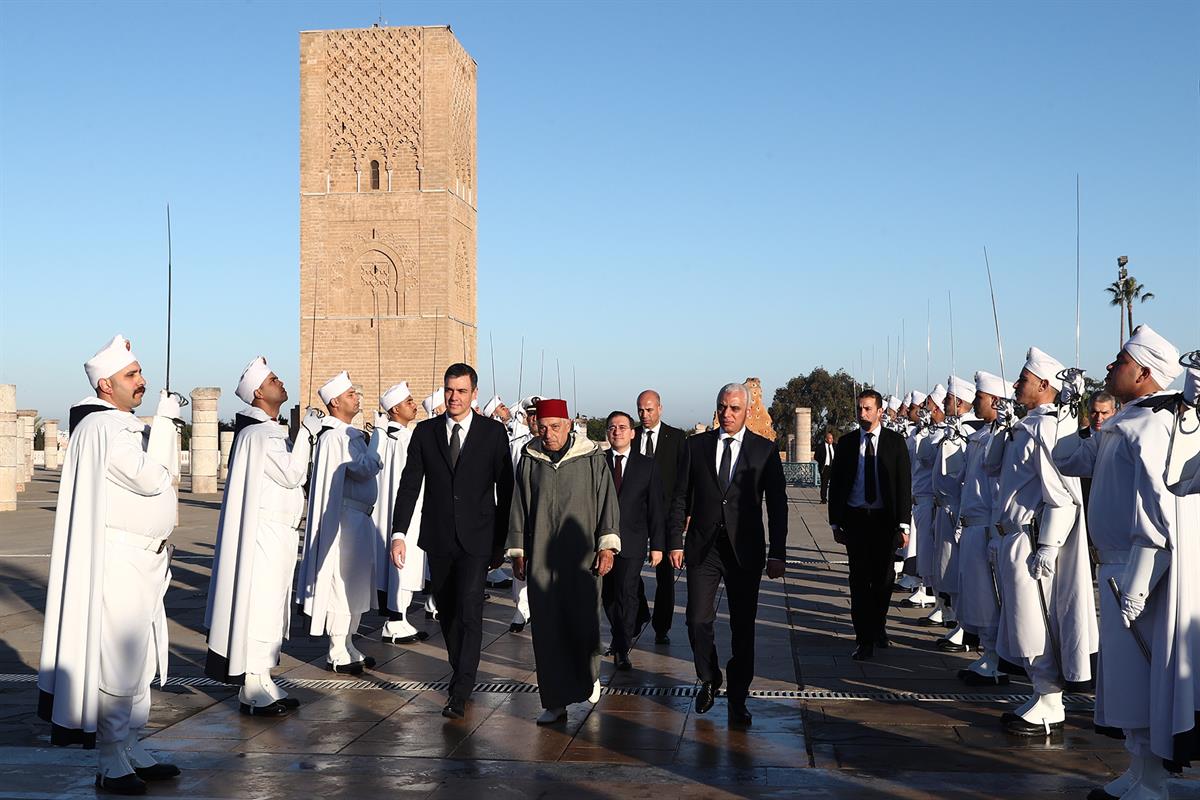
Relations between the EU and Morocco have hit several bumps in recent weeks, from Qatargate to suspicions of meddling in French media.
During its plenary at the end of January, the EU Parliament overwhelmingly approved a resolution that reprimanded Morocco for human rights violations and interference in EU politics. The motion approved on January 26th, with 356 votes in favour, 32 against, and 42 abstentions, called on the country to respect freedom of expression and the media, denounce the use of the espionage software Pegasus, and conduct fair due process for the imprisoned journalists Omar Radi, Sulaiman Raisuni, and Taufik Buachrine.
It also accused Morocco of corrupting MEPs and called for taking similar measures against Morocco as have been taken against Qatar, which has been banned from the EU Parliament.
Rabat did not take long to respond. The following Monday, it convened a special session of its own parliament to issue a response.
At the extraordinary session of both the high and low chambers, the spokesman for the Moroccan House of Representatives Rachid Talbi Alami said in a statement that the Moroccan Parliament had decided to “reconsider” its relationship with the European Parliament and affirmed that the resolution “had seriously damaged trust between the two legislative institutions.”
He defended his country as playing “an important role in the protection of rights and freedoms,” as well as international peace and security, and rejected the accusation that his country had bribed MEPs.
“This resolution has emptied these mechanisms of their meaning and purpose, mocked the content and resolutions of bilateral and multilateral meetings, as well as the tireless effort of the Morocco-EU Mixed Parliamentary Commission since its creation in October 2010,” he stressed.
“We are going to send the minutes and the press release resulting from this plenary session to the Presidency of the European Parliament, as well as the decisions that will be taken later,” he announced.
During the vote on the resolution in the EU parliament, the delegation from the Spanish political party Partido Socialista Obrero Español (PSOE) stood out for being among the few to vote against the resolution. The PSOE is the party of Spain’s president Pedro Sanchez, and The Objective also reports that according to sources in the foreign affairs ministry, Rabat threatened to be less cooperative at the upcoming and long-awaited Spanish-Moroccan summit should the PSOE’s MEPs support the resolution.
But bowing to Rabat seems to have done Sanchez little good.
At the summit that took place February 1st and 2nd, Moroccan King Mohammed VI stood Sanchez up. The summit, held regularly as part of a friendship pact between the two countries, is conducted with the Moroccan prime minister and his cabinet, but the king has always received the Spanish president in a personal audience as part of the meeting. This time, the monarch called Sanchez just hours before the summit to inform the president that he wouldn’t be leaving his Gabón vacation residence to attend their scheduled meeting. This is significant, as Mohammed is not just a figurehead in the country’s governance but key in formulating its policies.
At the summit, Spain also failed to achieve two important goals: Morocco’s recognition of Spain’s sovereignty over the enclaves of Melilla and Ceuta, which Spain has held since the 16th century, and the regularization of commercial activity across the Spanish Moroccan border with the two Spanish cities. Morocco unilaterally closed the border with Ceuta in 2018 and Melilla has never had a customs office. In October of last year, the Moroccan ambassador to the United Nations in Geneva, Omar Zniber, reiterated at the United Nations that his country does not recognize the land border with the two cities, a pretension to Moroccan sovereignty over the enclaves.
Politico also reported at the beginning of February that Morocco is suspected of interfering in the French news channel BFM TV. The station is in the middle of an internal investigation, possibly of a report presented by the Moroccan-French journalist Rachid M’Barki in January about an economic forum in Dakhla, a city in southern Morocco. Oddly, the broadcast, which reportedly did not go through the usual editing process before being aired, referred to the “warming of diplomatic relations” between Spain and Morocco facilitated by the “Spanish recognition of the Moroccan Sahara.” The reference to the disputed territory of Western Sahara as Moroccan Sahara is unusual, as France is neutral on the matter of Morocco’s claims to the former Spanish colony. France has an interest in remaining neutral since the issue is central to the serious diplomatic crisis between Morocco and Algeria, a former French colony. According to Politico, Morocco is putting pressure on France to move away from its position of neutrality.
Dealing with the Muslim monarchy just across the Mediterranean has never been easy for Europe. Morocco is an ally of the U.S., but has inevitably close relations with Europe, particularly Spain, due to its proximity. Morocco is a hotbed of illegal immigration into Europe but also a source of much-needed, legally contracted seasonal labour for Spain. Additionally, the EU has a fisheries partnership with Morocco that allows Europeans to fish its waters, and the EU commission is planning huge investments in solar energy and green hydrogen development in Morocco.
At the same time, Morocco is also suspected of using high-tech spyware on European journalists and heads of state, including French President Emanuel Macron and Spanish President Pedro Sanchez.
